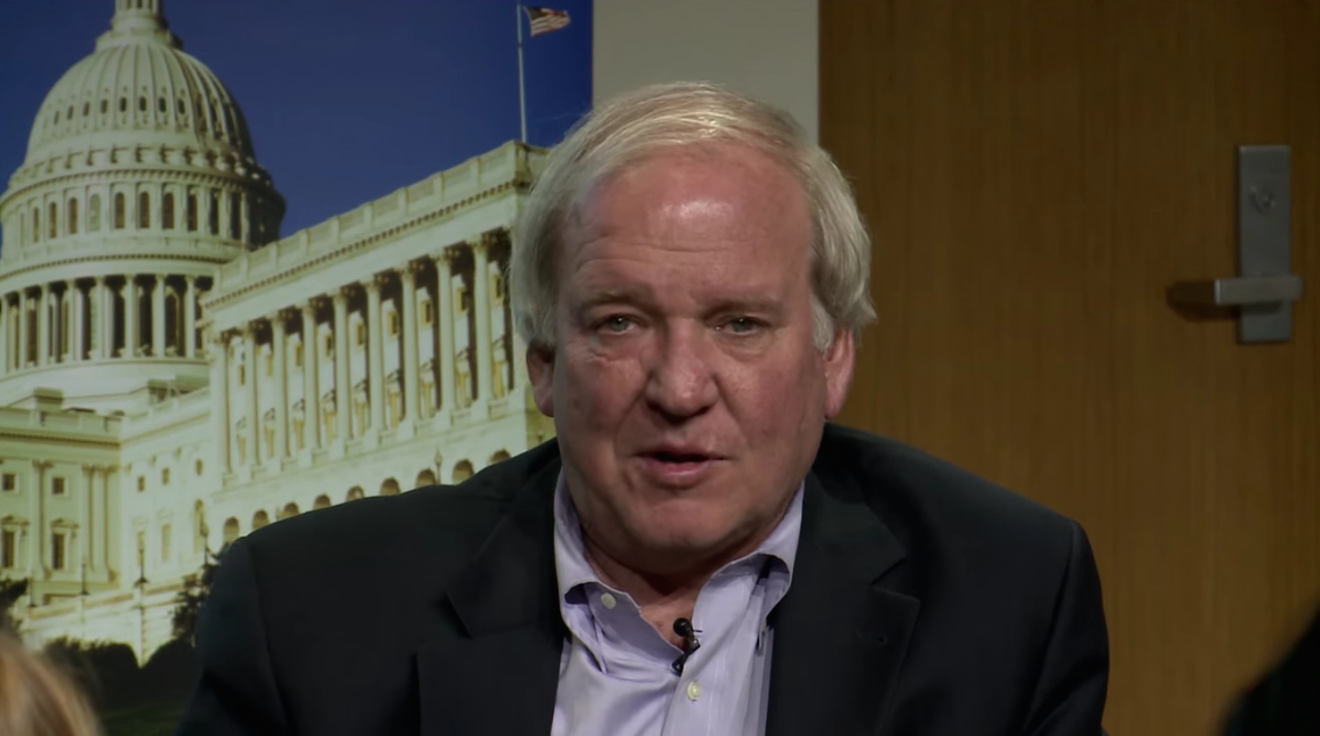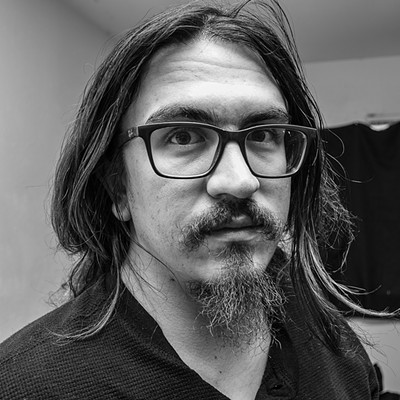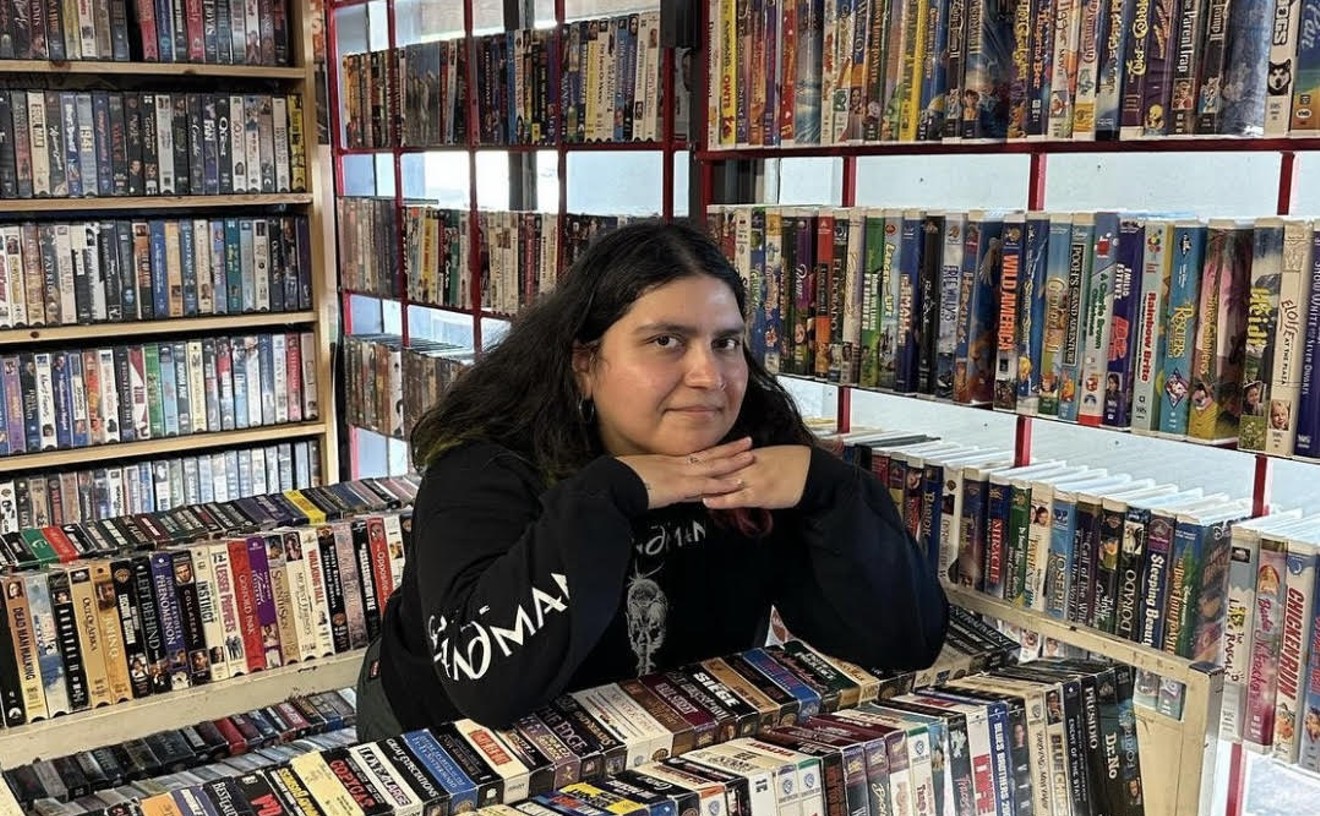Mike McCurry opened his lecture at Southern Methodist University’s Vester Hughes Auditorium by saying the school invited a self-described “certified, international, world class loser.”
The former White House Press Secretary for Bill Clinton was referring to the failed presidential campaigns of John Glenn, Bruce Babbitt and Bob Kerrey. “If you catch me being overly partisan,” he said. “Call me out on it.”
Still, his lecture, titled “Faith, Politics and Civil Dialogue in the Age of Trump: Can the Center Hold?” was aimed at reconciliation not resistance. “It can’t be like one side is going to fight the other side because the other side is just going to fight harder,” McCurry said. “It has to be about reconciling some of the differences that they have.”
McCurry said that houses of worship can be safe places for people of different political leanings to communicate on common ground, and in part, begin that conversation.
“It’s a tumultuous day in Washington,” McCurry, now a professor of public theology at Wesley Theological Seminary in D.C., said. “What can we do at this time [about] these very broken dysfunctional institutions in our civic life? What can we do if we think collectively about the role of the church? Those who are in the faith communities, how can they be a part of restoring the civility that I believe we need if we are going to get back to the places where we can make rational decisions about the future of our country?”
According to a Gallup poll conducted between July 1 and Aug. 28 2016, Christians in the U.S. were thinly divided leading up to the election, with 35 percent of Protestant Christians polled favoring Hillary Clinton and 40 percent favoring President Donald Trump; Catholics were divided among similar lines, with 45 percent supporting Clinton and 33 percent supporting Trump. Gallup also reports that the two groups represent three-quarters of all Americans.
“I believe that the church is a place of safe sanctuary for the kind of conversations that we need to have,” McCurry said. “It is still true if you’re in a mosque, in a synagogue, if you’re in a local parish on Sundays, there are more opportunities to interact with people who think differently than you do about the question, 'What’s happening the other six days of the week in our civic life together as a community?'”
While the lecture, which was hosted by SMU’s Center for Faith and Learning, focused on creating civil dialogue in churches, McCurry agrees that given the current state of American politics, people are already beginning to look more seriously at government.
“I think a lot of people are paying closer attention to politics now because they see more consequences,” McCurry told the Observer, during a reception that followed the lecture. “All the sudden things are happening or they’re hearing things that cause them some concern so you’ve got more people mobilized, more people participating in protests on both sides, more people engaged in arguments. So that’s one by-product of the polarization is that there is more animation. … But I think some of that has to be channeled in a direction where there’s discussion about what outcomes are going to come.”
[
{
"name": "Air - MediumRectangle - Inline Content - Mobile Display Size",
"component": "18855504",
"insertPoint": "2",
"requiredCountToDisplay": "2"
},{
"name": "Editor Picks",
"component": "17105533",
"insertPoint": "4",
"requiredCountToDisplay": "1"
},{
"name": "Inline Links",
"component": "18349797",
"insertPoint": "8th",
"startingPoint": 8,
"requiredCountToDisplay": "7",
"maxInsertions": 25
},{
"name": "Air - MediumRectangle - Combo - Inline Content",
"component": "17105532",
"insertPoint": "8th",
"startingPoint": 8,
"requiredCountToDisplay": "7",
"maxInsertions": 25
},{
"name": "Inline Links",
"component": "18349797",
"insertPoint": "8th",
"startingPoint": 12,
"requiredCountToDisplay": "11",
"maxInsertions": 25
},{
"name": "Air - Leaderboard Tower - Combo - Inline Content",
"component": "17105535",
"insertPoint": "8th",
"startingPoint": 12,
"requiredCountToDisplay": "11",
"maxInsertions": 25
}
]












